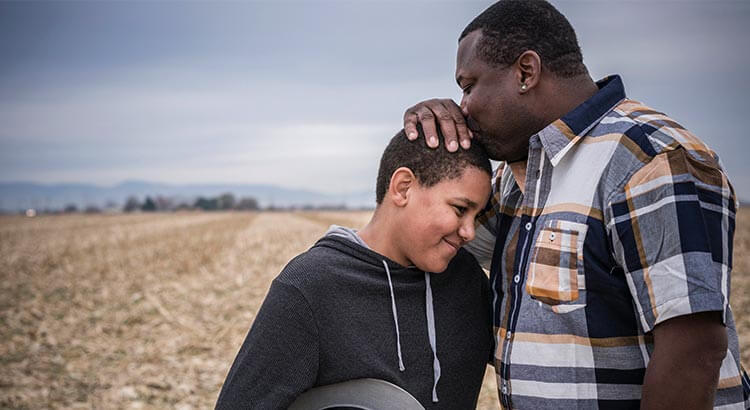I can recall the hot summer day nearly 10 years ago, I received a frantic call from my daughter while I was at work… Her 8 year-old sister pulled a knife on her during a disagreement and ran off from the house. No one knew where she was. I made some phone calls and rushed home as quickly as I could. We found my daughter safe at a family members house that she ran to. Trying to debrief what happened, there was a cold darkness in her eyes that I’d never seen before. It was almost as if my baby, the young lady I was raising and knew wasn’t there.
She was quiet, seemingly non-remorseful, feeling-less…I called a therapist I had taken her to a few times in the past to address her sadness and was told to take her to the emergency room immediately. That started a process that I didn’t realize would take many years of sweat, sacrifices and pain. It was then that I was faced with the reality that my daughter suffered from depression, anxiety and suicidal ideation.
Did you know that depression is common among children? I read a statistic that at least one in 20 children suffer from depression. In the time of crisis I was not aware of this. In fact, I felt alone, ashamed, and I blamed myself for what my daughter was going through. I analyzed myself as a parent and what I could do differently to make her better. The entire household took on this guilt as we all accepted part of the blame for her feeling like she didn’t belong among the living. The most difficult thing to deal with was her inability to express specifically what made her feel this way.
As a parent, when my children have issues – I can usually solve them; but not this one. No matter the treatment, therapy, hospitalizations, or changes implemented; I could not solve this problem for my daughter. It is an illness that can be improved but it takes time and willingness on the individual suffering from it to want it. I finally realized that my job as her parent was to help her to want, embrace and leverage the help available. She needed to know that there is hope, that things do not stay the same; they always get better, that no one is exempt from challenges no matter how great things look from the outside for other people, that life is about overcoming obstacles and celebrating the victories, and that the world needs her. She needed and continues the need to feel loved and needed.
I’ve learned some tips along the way that have been helpful in raising a child who suffers from depression, anxiety, and suicidal ideation.
Here are some tips to help:
- Know the symptoms (here are some): Lack of interest in anything, spending a lot of time alone, irritable, sad often and longer than what seems normal, makes comments around no one loving them or caring about them, sensitivity to rejection, changes in appetite, and changes in sleep patterns.
- Start treatment sooner than later – seek help, don’t be ashamed, and don’t blame yourself.
- Learn what’s going on with the child, what makes them feel hopeless, and attempt to remove any additional stressors that may be compounding the depression. It is common for children that suffer from depression to also suffer from another diagnosis such as, but not limited to, anxiety, OCD or ADHD.
- Understanding the triggers can help avoid, minimize or classify occurrences. Children and parents of children that are diagnosed can tend to attribute every unfavorable situation to their illness, which isn’t a good thing either. People make mistakes, they get sad, they get hurt… all of these circumstances that occur with someone who suffers from depression doesn’t deserve to be classified as part of their “depression.” It takes attention and effort to know the difference.
- Help the child find something they can do or participate in that they enjoy and makes them feel needed (one of the biggest considerations for an individual in crisis is whether anyone would miss them if they were gone)
- Even when things seem to have gotten better, continue to check in regularly to reduce the occurrence of crisis by being proactive.
- Most importantly let the child know they are not alone. There are many children that suffer from depression, they can learn to manage and have control over it.
It is not easy, but it does get better. Be kind to others because you never know what someone may be going through. Be strong for others in their time of weakness. Hang in there, don’t give up because it is totally worth the fight.
Additional Resources
U.S. National Suicide Prevention website & Lifeline: 1-800-273-8255
U.S. National Suicide Prevention Facebook page
Find a support group near you.
TC96060(0617)3

